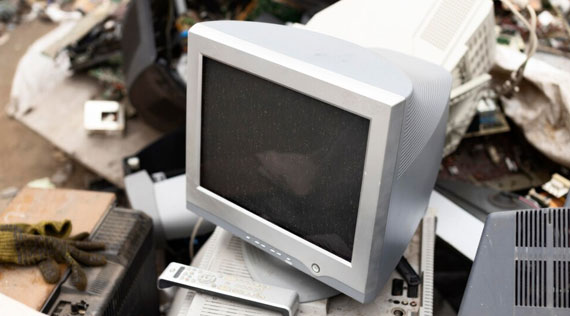Table of Contents
Concerned about getting rid of old computers? Recycling or reusing is the best option to consider.
Both businesses and households can consider recycling computers, as it is an environmental friendly way for seeking to dispose of outdated machines. Whether you are using desktop PCs, laptops, tablets or any, reusing ensures these devices not getting wasted. Along with protecting the environment, recycling also cutting costs for your company. The goal behind recycling is to find ways to use the components in their existing form in a new way.
Benefits of recycling computers
- environmental conservation
- e-waste reduction
- cost savings
- recovery of valuable resources
Computers contain risky materials such as cadmium, lead, and mercury, which can damage the environment if not disposed properly. By reusing system, such toxins can be prevented from polluting soil and water. So, let us discuss further on how to recycle computers?
Recycling is taking apart the computer and separating the components from it. Components that are commonly recycled in a computer include power supplies, graphics cards, motherboards, the hard drive, and RAM.
Popular Ways to Recycle Your Old Computers
- Go for manufacturer take-back programs: Enquire whether the manufacturer of your computer offer take-back programs, so that you can return the system for recycling.
- Choose electronic recycling centers: Electronic recycling centers or e-waste recycling facilities ensure that systems are disposed of properly according to environmental regulations. Choose the one in your area.
- Municipal recycling programs: Check with your local government or waste management authority to find out if they accept computers for recycling.
- Retailer trade-in programs: Some retailers allows disposing old machines, which will also save you money on a new one.
Step-By-Step Process for Recycling Computers
In case you have chosen a recycling facility to get your system refreshed, here are some steps to consider for a smooth process-
- Data backup and safe data destruction: Before recycling your system, check whether all personal or sensitive data is backed up and securely removed. Advanced data wiping software are available or you can consider safe physical destruction methods to ensure that no one can retrieved from the device.
- Be aware of local regulations: Research and understand local regulations regarding electronic waste recycling. Most areas have concerned guidelines or programs for the safe disposal of electronic devices.
- Prepare the computer: Remove all external accessories such as keyboards, mice, cables, etc. These items can often be recycled separately. Remove the hard drive from the system and destroy it separately to protect any delicate data.
- Transport to facility: Transport the computer and any accompanying components to the chosen e-waste recycling facility. Pickup and drop-off services are available with some facilities.
Also, educate others on the environmental impact of electronic waste and the importance of recycling. By responsibly recycling computers and electronic devices, you help reduce pollution and conserve valuable resources.
 By Paul
Ploumis | Published on April 22, 2024 12:00:00 AM
By Paul
Ploumis | Published on April 22, 2024 12:00:00 AM


